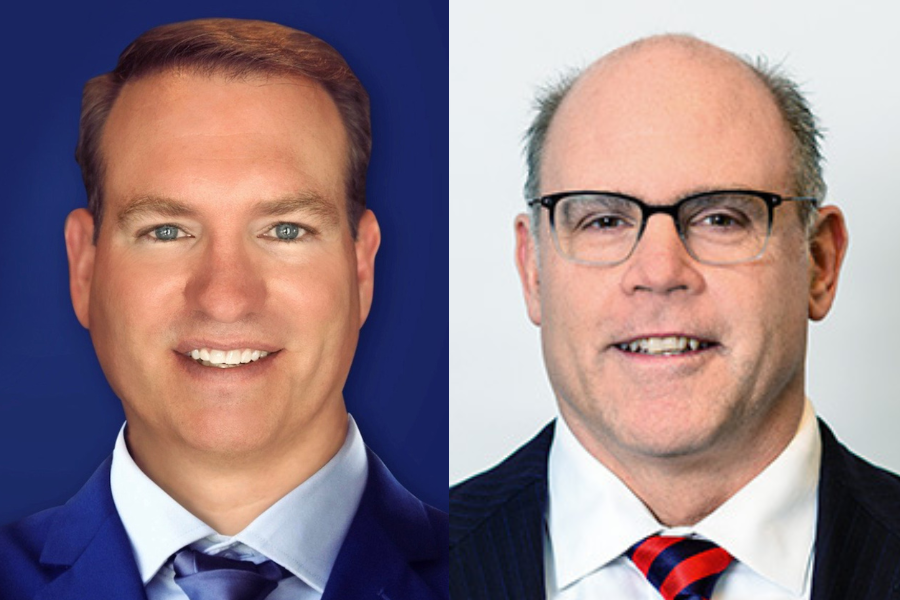

Financial advisors weren’t expecting a credit rating agency to downgrade U.S. debt two months after the country avoided a default, but they’re taking the move in stride.
Late Tuesday afternoon, Fitch Ratings demoted U.S. bonds from ‘AAA’ to ‘AA+,’ citing “expected fiscal deterioration” in coming years, the country’s “growing … debt burden,” and the “erosion of governance.”
The last point relates to Congress and the White House agreeing at the last moment to raise the debt ceiling earlier this summer. Advisors weren't worried then that the country would spurn its debt. Nor were they shaken up by Fitch’s decision, which came weeks after a potentially catastrophic default was averted.
“The timing is surprising, but it’s not totally unexpected,” Francisco Ayala, an advisor at The Coleridge Group, said of the downgrade. He noted that Fitch has had a negative rating watch on the United States for a while.
“This has more to do with politics than the economic stability of the U.S.,” Ayala added.
Lisa Kirchenbauer, founding partner and senior advisor at Omega Wealth Management, also was caught off guard by the Fitch announcement.
“My initial reaction last night was, ‘Wow, this is a little late,” Kirchenbauer said. “I don’t think it’s worth panicking about.”
Jeff Farrar, founding partner at Procyon Partners, also was sanguine, noting that Fitch is the second credit agency to downgrade U.S. debt.
“S&P did it [more than] 10 years ago, and we’re still stumbling on. Nothing’s gotten better,” Farrar said. “It’s not great, but it doesn’t mean the world is going to end tomorrow.”
The problems that Fitch cited regarding the brittle politics in Washington were hardly a revelation, advisors said.
“It’s not telling us anything we don’t already know about our government,” said Steve Ankerstar, CEO of Ankerstar Wealth. “If the U.S. was any other country — or company — they would have already downgraded.”
The relatively muted market reaction – with the Dow falling about three-quarters of a percentage point as of early afternoon Wednesday — was a good sign.
“The overall strength of the economy is why [the sell-off] is not worse,” Ankerstar said. “But [Fitch does] make valid points about the long-term fiscal deterioration of the U.S. government.”
The downgrade is not causing advisors to reevaluate client portfolios.
“There has been corporate news that has impacted the Dow more than this downgrade,” Ayala said. “Investors are just looking past the noise.”
Kirchenbauer is focused on the Federal Reserve’s next move on interest rates, corporate earnings and the ever-looming potential recession. “The fact that markets are up this much always makes me incredibly nervous,” she said.
Assessing the chance of a second-half economic slowdown is a higher priority than the downgrade.
“If the economy stays strong, we’re going to remain long,” Ankerstar said.
But there was one reaction to the downgrade that has investment implications for Ayala’s clients. Yields on 10-year Treasury bonds increased to about 4%.
“We’re taking this as an opportunity to go farther out on the yield curve to capture safe and high yield,” Ayala said.

A new proposal could end the ban on promoting client reviews in states like California and Connecticut, giving state-registered advisors a level playing field with their SEC-registered peers.

Morningstar research data show improved retirement trajectories for self-directors and allocators placed in managed accounts.

Some in the industry say that more UBS financial advisors this year will be heading for the exits.

The Wall Street giant has blasted data middlemen as digital freeloaders, but tech firms and consumer advocates are pushing back.

Research reveals a 4% year-on-year increase in expenses that one in five Americans, including one-quarter of Gen Xers, say they have not planned for.
Orion's Tom Wilson on delivering coordinated, high-touch service in a world where returns alone no longer set you apart.
Barely a decade old, registered index-linked annuities have quickly surged in popularity, thanks to their unique blend of protection and growth potential—an appealing option for investors looking to chart a steadier course through today's choppy market waters, says Myles Lambert, Brighthouse Financial.
